
Contribute to the realization of decarbonized societies by striving to reduce greenhouse gas (GHG) emissions, while providing products and services that support decarbonization during the transition period.
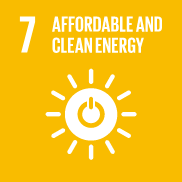
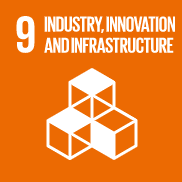
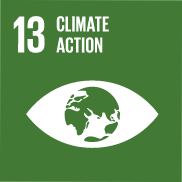
We regard achieving a decarbonized society as one of our important corporate issues that should be challenged, and are promoting carbon reduction and decarbonization through our business activities with “Contributing to Decarbonized Societies" as one of our materialities. By leading this transformation and "connecting" it to our own business growth, we will create MC Shared Value. In addition to promoting our own decarbonization (Halve by FY2030 (compared to FY2020) and net zero by 2050), we will contribute to the decarbonization of society by creating avoided emissions through EX-related investments on a scale of 1.2 trillion yen over the three-year period of Midterm Corporate Strategy 2024.
MC is expanding its renewable energy business in Japan and abroad to achieve a decarbonized society. In connection with this initiative, MC is moving ahead with the goal of doubling its renewable energy equity generation capacity from 3.3 GW in FY2019 to 6.6 GW in FY2030.
Current generation capacity (net equity basis), including assets under construction, is 3.9 GW (as of the end of September 2024).
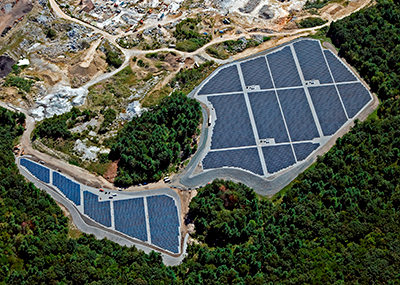
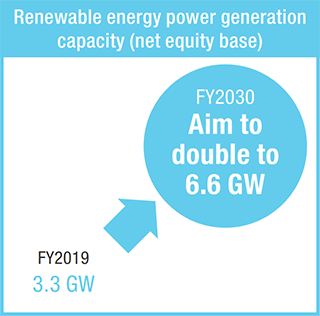
MC is promoting the practical implementation of hydrogen and its derivatives such as ammonia to the society. MC is proceeding with joint investigation with our partners at each stage of the value chain, “production,” “transportation” and “usage.” We are also promoting the societal implementation of Sustainable Aviation Fuel (SAF) in the area of aviation fuel, where electrification and hydrogenation are difficult.
Mineral resources such as copper are essential products which are used for renewable energy and electrification and are vital to achieving a decarbonized society. MC aims to expand our copper business through organic growth opportunities in existing assets, which boast some of the world’s largest copper reserves, increasing our interest in existing assets, acquiring new assets and utilizing new technologies to improve resource recovery.


MC, as a company aiming to contribute towards achieving the goals of the Paris Agreement, recognizes that CCUS will play a major role in achieving those goals. The International Energy Agency (IEA) has stated that CCUS must be used to reduce roughly 1.5 billion tons of CO2 emitted in 2050 in order to achieve the 1.5°C target (the remaining amount to be reduced through renewable energy and energy-saving technology), and the Intergovernmental Panel on Climate Change (IPCC) has also emphasized the role that technology should play. CCUS is a field that spans multiple industries, from those that are the source of CO2 emissions, to those that produce end-products such as fuel and chemical materials. Therefore, MC recognizes CCUS as a business opportunity to demonstrate its collective capabilities as a company that interacts with many industries. To take advantage of this business opportunity, MC will promote the commercialization of CCUS by establishing a task force spanning multiple business groups as well as a liaison committee.
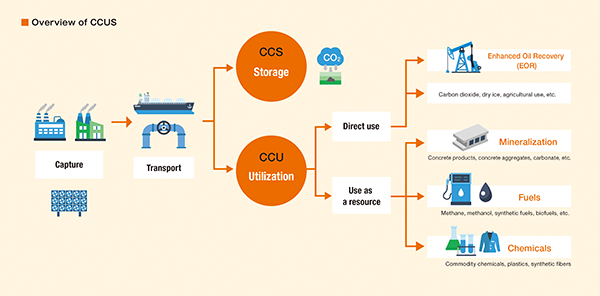


Recognizing the Earth itself to be our most important stakeholder, strive to maintain biodiversity and conserve natural capital, and work to create circular economies while reducing our environmental footprint.
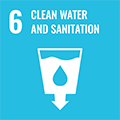

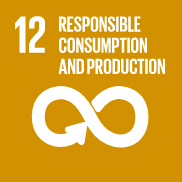
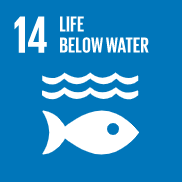
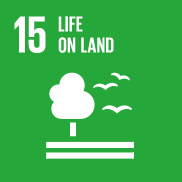
Every business in our company is built on the foundation of the natural capital benefits that the ecosystem provides. Therefore, we recognize that the conservation and effective utilization of this natural capital are indispensable to achieving sustainable growth together with society. MC is committed to realizing a circular economy by taking advantage of business opportunities while trying to diminish our negative impact on the global environment.
MC considers the realization of a circular economy to be a pillar of our EX initiatives. To achieve this, it is essential to make effective use of limited resources and ensure they are able to circulate as efficiently as possible. MC is committed to the environmentally friendly materials manufacturing business through the recycling of materials by utilizing new technologies, bio-carbon recycling, new businesses related to product recycling, and materials and products that support a low-carbon, decarbonized society.

MC entered the PET chemical recycling business through an investment in Thai Shinkong Industry Corporation Ltd., which produces PET resins for beverage bottles with a new production line having started operation in June 2023. PET is highly recyclable mono-material with a wide range of applications, including in food and beverage containers as well as in textiles, thanks to its excellent transparency, barrier properties, and well-established collection and recycling systems. As the transition to a circular economy progresses worldwide, we will expand our capacity for producing PET resins, for which demand is expected to grow in line with the shift towards mono-materials, and by introducing chemical recycling technologies through our participation in the PET chemical recycling business with the aim of “Conserving and Effectively Utilizing Natural Capital”.
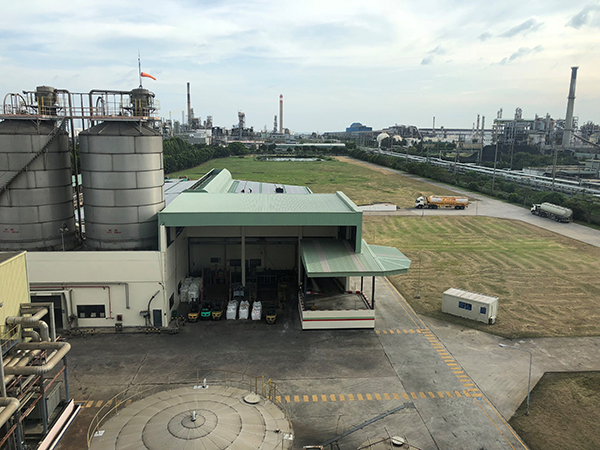
ALTNA Co., Ltd. was established in July 2024, as a joint venture with Honda Motor Co., Ltd. (Honda), and is striving to create new businesses in light of anticipated growth in the electric vehicle (EV) market toward a decarbonized future society. By combining Honda's control and connected technologies for EVs and batteries and MC’s energy business know-how, which extends to administration battery energy storage and smart-charging operations, ALTNA will strive to introduce and develop new business model that reduces Total Cost of Ownership (TCO) for EV users and contribute to realize the long-term utilization of EV batteries.
For details of these businesses, please refer to the following page.
Almost all MC businesses interact with the environment and depend upon the benefits ecosystems can provide. In order to ensure the future continuity of our business activities, MC needs to understand the extent of our environmental dependencies and impacts, analyze risks and opportunities, minimize excessive reliance and negative impact on the natural environment, and pursue initiatives that contribute to environmental recovery.
From this perspective, MC conducted a trial analysis based on the TNFD framework recommendations from FY2022 to FY2023. In the future, we will utilize the knowledge obtained from the trial analysis in the management of individual businesses and continue to identify and respond to nature-related issues using the TNFD framework, thereby improving the MC Group's sustainability and corporate value.
More details regarding MC’s initiatives on biodiversity are available here.




Promote sustainable societies and lifestyles of the future through businesses in a diverse range of countries and industries, while fulfilling our responsibility to provide a stable supply of resources, raw materials, products, services, etc., in line with the needs of countries and customers.
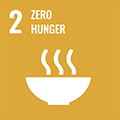



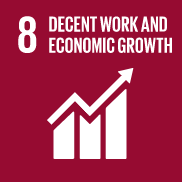




Ensuring the stable lives of people is one of our company’s greatest mandates, and we believe it is important to fulfill this in a sustainable manner through our business. While continuing to provide the goods and services necessary for maintaining the operation of the current societal system, we will promote businesses which move society forward towards a more sustainable future.
Global energy demand is expected to increase mainly due to population growth and economic development. While the switch to renewable energy is expected to progress in the power sector in the future, dramatic technological innovation is essential to supplement renewable energy sources in terms of intermittency, location and other factors. Therefore, to meet the world’s growing energy demand and at the same time realize a carbon-neutral society, it is essential to decarbonize fossil fuels.
MC is committed to fulfilling its responsibility to provide a stable supply of natural gas and LNG, which will support the transition period with its relatively low environmental impact among fossil fuels, as well as reduce GHG emissions throughout the value chain via improvements in operational efficiency, CCUS and other methods.

Tangguh is the largest gas-producing project in Papua Barat Province of Indonesia, accounting for around 30% of the country’s gas output. MC is participating in the project as a joint venture with bp, the project operator. Tangguh LNG Project began operations in 2009 and has safely delivered more than 1,700 cargoes to global markets including Indonesia and Japan. In 2023, the expansion of a third LNG train added 3.8 million tons per year of LNG production capacity to the existing 2 trains (production capacity: 7.6 million tons per year), increasing the total LNG production capacity of the Tangguh LNG Project to 11.4 million tons per year.
In addition, we are planning the next phase of development including CCUS project, which is based on a Plan of Development approved by SKK Migas (Special Task Force for Upstream Oil and Gas Business Activities Republic of Indonesia) in 2021. Once the CCUS project is implemented, which is subject to a final investment decision by Tangguh Partners, it will remove up to 90% of the reservoir-associated CO2 which represents nearly half of Tangguh’s LNG emissions, making Tangguh one of the lowest GHG intensity LNG plants in the world.
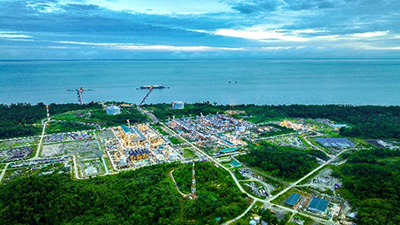
Since steel is a basic material that is difficult to replace, its demand is expected to remain strong over the long term in line with global economic growth. In the steel industry, the ironmaking process (blast furnace method), which uses primarily iron ore as raw materials, emits a high amount of GHG emissions. Therefore, it is expected that the use of electric furnaces, which mainly use steel scrap, and the use of hydrogen in the ironmaking process will expand in the future. However, it will take considerable time to realize the necessary technological innovations and switching of production facilities. Therefore, decarbonization of the blast furnace ironmaking process, which is currently the mainstream process, will be an important issue for the time being. MC will continue to contribute to the decarbonization of the steel industry by fulfilling our responsibility to provide customers with a stable supply of high-quality metallurgical coal as one of raw materials for the blast furnace ironmaking process, one of MC’s major commodities, and contribute to the decarbonization of the existing blast furnace method.
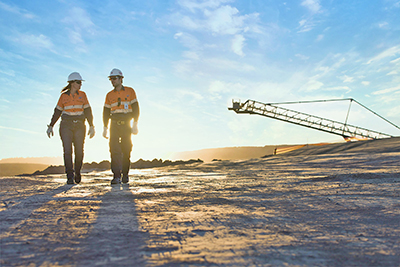
Mitsubishi Development Pty Ltd. (MDP) which conducts exploration, development, production, and sales of mineral resources, jointly operates its metallurgical coal business, BMA, together with its partner. BMA operates one of the world’s largest metallurgical coal operations. BMA is fulfilling its responsibility to provide a stable supply of high-quality metallurgical coal that contributes to the decarbonization of the blast furnace method of steelmaking. In April 2024, divestment of some of its coal mines was officially concluded, marking the culmination of our efforts to consolidate its holding in high-grade/quality mines.
Also, while staying aware of changes in the business environment, MDP will strive to reduce GHG emissions from BMA’s production processes. Furthermore, together with its metallurgical coal business partner BHP, MDP is working to support research that contributes to reducing emissions throughout the entire metallurgical coal value chain. In October 2022, MDP entered into a collaboration agreement with ArcelorMittal, Mitsubishi Heavy Industries, Ltd. and BHP regarding the application of CO2 capture technology in the field of steel making and jointly conduct demonstration tests for the application of CO2 capture technology at ArcelorMittal's steel works.
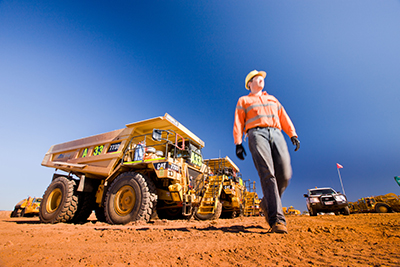
With demand for food rising in line with global population growth, and an increased interest in sustainability, the establishment of a sustainable production and supply system is becoming increasingly important. MC is working to develop sustainable production, processing and sales business model, as well as increasing products that have international fishing/farming certifications such as MSC/ASC, and promoting transactions with suppliers that comply with our Policy for Sustainable Supply Chain Management.
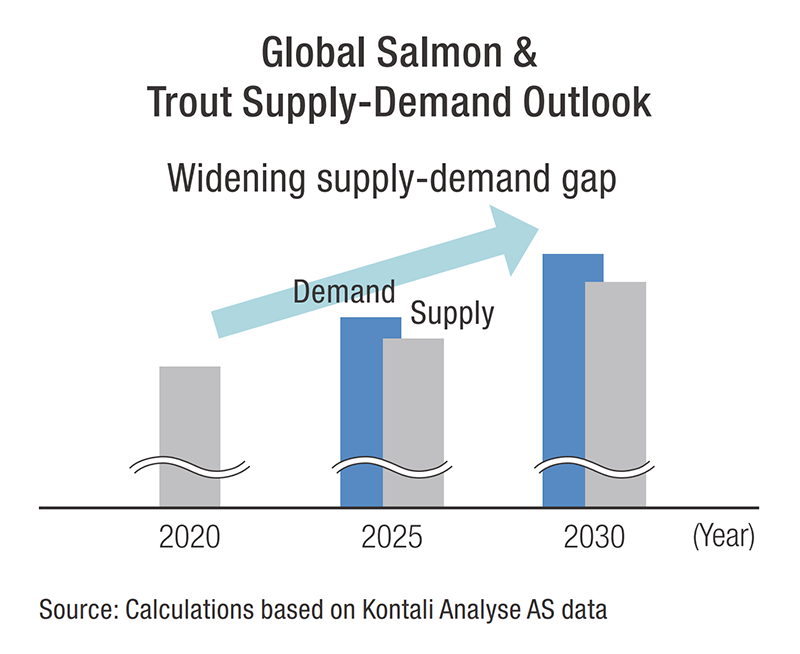
Cermaq is one of the major salmon (including coho) farming, processing and sales companies in the world which became a subsidiary of MC in 2014. Cermaq produces salmon in Norway, Chile and Canada for a total production quantity of around 200 thousand metric tons per year and supplies sustainable, safe and secure farmed salmon to consumers around the world.
Cermaq, has identified biodiversity protection as a key part of its license to operate in all the countries where it has operations. Cermaq works actively in cooperation with local stakeholders to protect biodiversity, including salmonids in all areas where they are present, monitoring of benthic impacts and tracking bird and marine mammal mortalities at its sites in compliance with all laws and regulations of Chile, Canada, and Norway and additional requirements set by different certification standards (ASC and BAP).Cermaq also engages in beach cleaning in the regions it operates, irrespective of the source of the litter.
In its feed supplier Code of Conduct, Cermaq mandates that no fish meal or fish oil used in the feed for its fish shall originate from IUU (Illegal, unreported, unregulated) fisheries and that soy shall be deforestation free.
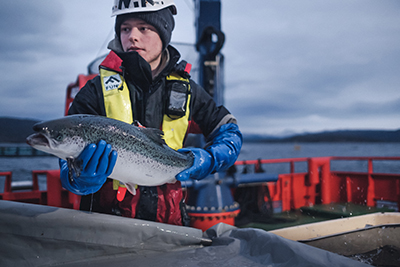

Create businesses that help to address societal needs while working to spur major industry reforms that are supported by business innovation.



We recognize that innovation has great potential to enable us to solve societal and industrial issues and to considerably enrich people’s daily lives. MC will achieve sustainable growth by dynamically transforming our current businesses, whilst approaching business opportunities that are generated by innovation.
MC has many physically based businesses that require DX-driven solutions. By providing DX functions to these businesses, we will optimize logistics and improve productivity, increase business value, and contribute to the development of the industry as a whole and the realization of vibrant local communities.
By developing cross-industry DX functions that leverage our broad business knowledge and then providing them as services, MC will help to improve the value of industries themselves. Toward this end, we aim to improve the productivity of industry and society as a whole and create sustainable value by building a “cross-industry digital ecosystem” in which industries, companies, local communities and others can organically connect and coexist.

MC Digital is an AI and data science company wholly owned by Mitsubishi Corporation, with the mission of “updating business models by leveraging technology”. MC Digital aims to have a significant impact on global industrial transformation by utilizing cutting-edge technologies, including generative AI, in the wide range of industrial fields in which Mitsubishi Corporation is involved. It is also actively working on new business development, deepening partnerships with international innovation ecosystems, academic institutions, and government agencies. Through these activities, MC Digital contributes to society by providing a wide range of solutions around the world.

Food waste in Japan has been calculated to be 5,700,000 tons (2019), and the scale of this food waste is equivalent to 1.4 times the amount of the WFP's (World Food Programme) world food aid (2020). Additionally, around 54% of Japan’s total food waste is comprised of commercial food waste that is disposed of during the distribution and production process. This is recognized as a key issue to be solved for the food distribution industry.
MC is proceeding with initiatives to reduce food waste using digital technology, including AI. Some of MC’s subsidiaries and affiliates have set a goal of reducing food loss by 50% by 2030 through initiatives such as improving distribution efficiency.

Specifically, MC has begun developing solutions to enable the prediction of demand and automation of ordering at food wholesalers. Through the utilization of AI to calculate appropriate order quantities, in order to not cause shortages, while reducing the stock amount at food wholesalers and then connecting this to actual orders, the “purchasing of the necessary amounts of necessary items” will become possible. Therefore, MC can contribute to the reduction of food waste at food wholesalers. In the demonstration experiment, compared to current manual ordering processes, it was possible to reduce stock volume while also reducing the probability of stock shortages. This solution is anticipated to display sufficient efficacy.
Mitsubishi Shokuhin, which operates a core function in the food distribution business, has completed the introduction of an inventory optimization solution that utilizes AI demand forecasting into all Lawson centers.
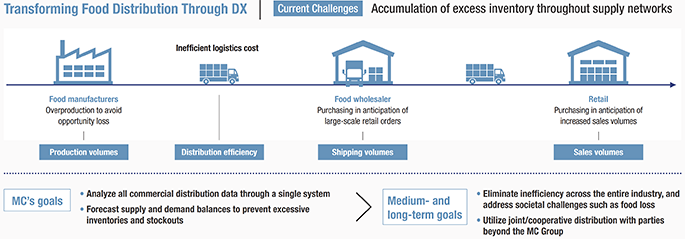
Supply chains connecting producers and consumers are made possible through effective combinations of storage and transportation-based logistics capabilities. Japan’s domestic warehousing market is central to those supply chains and worth approximately seven trillion yen. Various negative pressures including labor shortages, dependencies on specific individuals for certain jobs and lease agreements have resulted in inflexible inventory capacities, which has in turn contributed to wasteful, inconsistent and burdensome fulfillment practices throughout numerous industries. Other countries, such as the US and China, are facing similar challenges, which has prompted innovators to develop new business models such as self-driving warehouse robots and schemes that allow users to share vacant warehouse spaces.
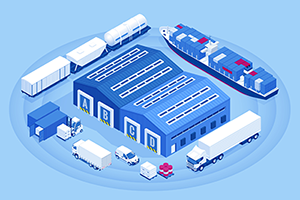
Considering that the “Roboware” subscription service allows anyone, regardless of their background or skills, to use robots to easily manage their warehouse facilities, it presents a viable solution to the labor-shortage and overreliance problems mentioned above. “WareX” is a similarly straightforward system that anyone can use to share available warehouse space, thus addressing the problems of limited or excess capacities.
Gaussy will offer customers both of these services, the former (Roboware) of which employs six types of warehouse robots and has already been rolled out in more than 35 facilities across Japan, and the latter (WareX) of which has more than 1,500 facilities (as of June 2024) registered on its nationwide system. Large, medium and small enterprises alike have been taking advantage of “WareX,” as it provides them with an efficient way to lease vacant warehouse spaces on a pay-as-you-go basis.
Driven by its vision to create new opportunities in logistics, Gaussy is committed to developing flexible mechanisms that will adapt to evolving warehousing needs and cargo volumes. All of its partners look forward to offering fulfillment customers with new and unprecedented options for their businesses.
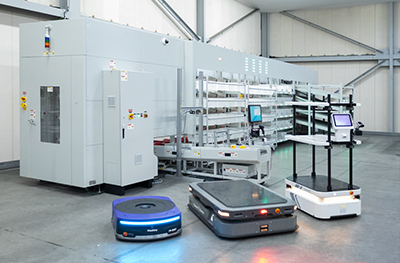
Decarbonization is an urgent issue that requires fast-paced initiatives on a global scale. To this end, MC believes it is important not only to develop completely new decarbonization technologies, but also to innovate at the scale-up stage, moving technologies that have already completed R&D to implementation as quickly as possible.
In order to realize a carbon neutral society, MC is already promoting the development of EX-related businesses such as next-generation energy. In order to complement and further accelerate these initiatives, MC will work to scale-up innovative decarbonization technologies through public-private partnerships.
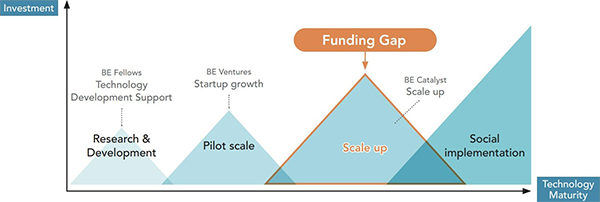
MC is the first company in Asia to participate in Breakthrough Energy Catalyst (BEC), a program dedicated to accelerating the application of innovative decarbonization technologies in society.
BEC is a brand new model that was launched as part of Breakthrough Energy, a network of initiatives founded in 2015 by global philanthropist Bill Gates. The BEC program provides investment and other support for individual projects based on new decarbonization technologies for which research and development have already been completed.
MC is active in the renewable energy field and has begun to explore the introduction of next-generation energy sources, such as hydrogen, ammonia, and methanation. We recognize the need to use new technologies and innovations to meet the global challenge of transitioning to a carbon-neutral society.
In addition, BEC acts as a ‘Catalyst’, organically linking funds from private sector partners and philanthropic organizations, product off-take support for consumers of green products, and assistance from government agencies. Through these activities, BEC is establishing a framework to support the scaling up of projects based on innovative decarbonization technologies that are nearing commercialization, contributing to the realization of a carbon-neutral society.
The current five focus areas for BEC are (1) clean hydrogen production (and related infrastructure), (2) long-duration energy storage (LDES), (3) sustainable aviation fuels (SAF), (4) direct air capture (DAC), and (5) green manufacturing industries (steel, cement, plastics, etc.). In the future, BEC may expand its focus to include other technologies that are also important for decarbonization. MC also considers these technologies vital to its own EX Strategy and its Roadmap to a Carbon-Neutral Society.
Our participation in BEC will allow us to support the adoption of innovative technologies that will accelerate the transition to a carbon-neutral world and contribute to further reductions in environmental impact without compromising people’s well-being.
MC will contribute to the transition to a carbon-neutral society by making full use of the expertise and networks that it has cultivated in Japan and throughout Asia to collaborate with other BEC partner companies who represent a broad range of industries, including steel, aviation, and finance.




Strive to contribute to the development of economies and societies by addressing issues facing countries and regions, while seeking to grow together and collaborate with diverse stakeholders, regions and communities.
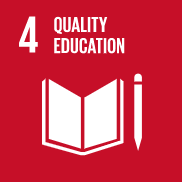



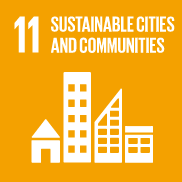
We believe that MC can create significant value by leveraging our company’s unique collective capabilities and connections with various industries, and by interconnecting with diverse stakeholders and local communities. We will pursue sustainable growth together with local communities by resolving issues that communities are facing and also by approaching peripheral business opportunities.
In May 2022, MC announced its new management plan, entitled “Midterm Corporate Strategy 2024 – Creating MC Shared Value.” The plan details MC’s growth strategy to promote regional revitalization through utilizing integrated EX and DX initiatives. MC has embarked on initiatives to promote specific measures for regional revitalization throughout the company, including the creation of new carbon-neutral industries, supporting smooth transitions to decarbonized societies and developing vibrant communities.

In November 2022, MC opened new domestic branches in Japan for the first time in 35 years in both Akita and Choshi. MC was appointed as one of the operators of Japan’s first, general-sea-area fixed-foundation wind farms which are being developed off the coasts. With the themes of utilizing local energy resources such as renewable energy, creating new carbon neutral industries, and creating vibrant communities by addressing regional issues, MC aims to create a new future through the fostering of new industries and regional revitalization, such as by addressing challenges facing society and industry through collaboration with various stakeholders including partners and local government authorities, while taking advantage of our unique, wide-ranging industrial network. The Akita and Choshi regions are a precedent for this, and MC will continue to work closely with our electric power subsidiaries and offshore wind project companies that will develop the offshore wind power business for more than 30 years to come, with the aim of developing not only offshore wind power, but also of realizing MC’s goal of promoting regional revitalization through the integrated EX and DX initiatives.


MC signed partnership agreements with the five cities by 2023:Yatsushiro in Kumamoto Prefecture, Kurashiki in Okayama Prefecture, Nasushiobara in Tochigi Prefecture, Choshi in Chiba prefecture and Chitose in Hokkaido prefecture, to resolve regional issues and promote initiatives for regional development and revitalization. Specific cooperation items cover a wide range of areas, including the revitalization of local and regional communities using digital technology and improvement of civic services such as energy, mobility, and health. In Nasushiobara and Chitose, a service of "Hometown Tax Program (Furusato Grant)", provided by MC, was introduced. The both cities have started a fundraising business.
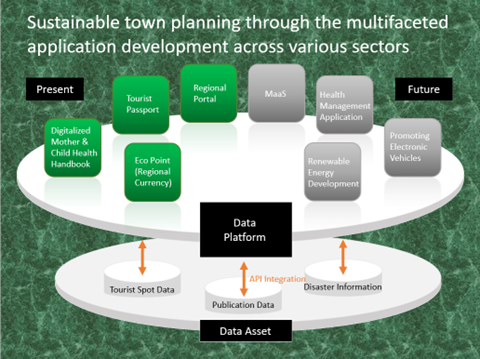
The explosive expansion of the middle class and rapid urbanization, particularly in emerging economies, has increased the need for development and management of social infrastructure projects that take into account social and environmental values.
In the midst of such changes in the external environment, MC aims to contribute to the economic growth of the countries in which it operates, while also helping to reduce environmental impacts, by promoting the development and management of large-scale, high-value-added urban development projects to sustainably create high-quality living, working, medical, educational, logistics, and transportation environments.
MC is exploring an urban management project and promoting a large-scale urban development project in collaboration with Sinar Mas Land (SML), one of the largest real estate developers in Indonesia.
MC signed an MOU with SML in March 2020, initiating a joint execution of urban management as well as the implementation of smart and digital solutions (urban services) in BSD City (6,000 hectares). This partnership between MC and SML aims to implement urban services throughout BSD City, including an AI/IoT data platform, city portal, mobility, and energy-related content, in collaboration with various MC Group companies and partners across different business sectors.
After the signing of the MOU, we initiated the first trial operation of autonomous electric vehicles (AEVs) in Indonesia, followed by the sharing service experiment designed to promote a shift in behaviour from “owning” to ”renting”. Furthermore, we have recently embarked on another experiment involving a mobile convenience store operated by electric vehicle. Through these initiatives, we have been actively exploring different city service experiments and implementations aimed at addressing social issues while promoting city sustainability.
At the same time, in the same city, MC is working with SML on a large-scale developmentThis project is the first transit-oriented development*Urban development based on public transit, aiming for a society that is not dependent on automobiles.* in Indonesia, and it will develop a smart city that combines urban functions such as residential units, commercial properties, schools, hospitals, parks, and public transportation nodes on a new development site of over 100 hectares.
By encouraging a modal shift towards expanding and promoting the use of public transport, we aim to contribute not only to the economy, but also to society and the environment by helping to address issues such as traffic congestion and air pollution. Another goal is to create convenient, safe, and secure urban developments through the implementation of urban services such as AI/IoT data platform, city portal, mobility, and energy-related content.


In regional communities facing depopulation, there is a growing need for on-demand transportation services that allow for the streamlining of transportation, and more services utilizing digital technology. MC will work to address societal challenges through our mobility services business and aim for further expansion by further strengthening our business foundation, which includes functions we have developed over many years and our ability to build community-based networks.

MC is part of a consortium that has commenced trial operations of a mobility-as-a-service (MaaS) project in Shiojiri City, Nagano Prefecture. The “Shiojiri Project” is being undertaken as part of an initiative launched by Japan’s Ministry of Economy, Trade and Industry (METI) to promote new, regional MaaS applications. MC’s partners in the consortium include Next Mobility Co., Ltd., a joint venture between MC and Nishi-Nippon Railroad Co., Ltd., and the municipal government of Shiojiri City.
Based on the successful results of the demonstration project, we are now shifting to full-scale operation and expanding certain service areas. Other than rail, the only means of public transportation in Shiojiri City is a community bus service, but it has been hampered by problems such as a lack of drivers, and a limited fleet. The city is also aging. About 28% of its roughly 67,000 residents are at least 65 years old, which has led to an even greater need for public transportation. To address both of these needs, the consortium that MC is participating in will work to solve the problems facing public transportation in Shiojiri City through promotion of the “Shirojiri Project”.


Respect the human rights of all stakeholders involved in promoting our diverse operations worldwide, and pursue solutions for value chain-related issues, while considering the local conditions in each country.
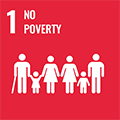

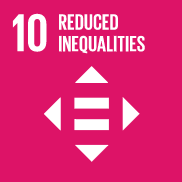
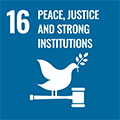
It is impossible to conduct sustainable business or to increase corporate value without respecting the human rights of the people we involve in our business activities. MC will not only respect human rights when promoting its businesses but will also pursue business opportunities which create added value by tackling human rights issues.
MC’s current activities have expanded far beyond its traditional trading business to include project development, production and manufacturing operations, working in collaboration with our trusted partners around the globe. Furthermore, since MC handles a wide range of products and services around the world, we believe in the importance of identifying and analyzing the negative impacts of our business on human rights and the environment in order to ensure that such impacts are avoided/mitigated. MC is conducting human rights and environmental due diligence with this in mind.
Further details of MC's initiatives on human rights are available here.

In order to monitor suppliers’ compliance with our Policy for Sustainable Supply Chain Management, we have identified products with high environmental and social risk in 2016 and 2020 with advice from consultants and external advisors. MC conducts annual surveys of suppliers (via our Sustainable Supply Chain Survey), with a focus on those industries where social risks including human rights and labor conditions, as well as environmental risks, are considered higher. In addition, MC has formulated individual procurement guidelines for each product as needed. Most recently, in January 2024, we formulated our Soybean Procurement Guidelines.
Mitsubishi Corporation Fashion Co., Ltd., a wholly-owned subsidiary of MC, is working to enhance sustainable procurement of apparel products, strengthen communication and dialogue with suppliers through our Sustainable Supply Chain Survey, and promote the development of a sustainable supply chain.

The MC Group has a global workforce of approximately 86,000 professionals, who we recognize as some of our most important stakeholders. In order for the MC Group to continue generating corporate value sustainably, it is necessary for diverse human resources, regardless of gender, nationality, etc. to be able to fully demonstrate their respective capabilities in response to the further diversification and globalization of business. We believe that the fundamental premise for this is the development of a working environment based on respect for human rights, starting with ensuring workplace safety.
For further details of initiatives and progress, please also visit here.

Recognizing that our human resources are the great assets of our businesses, foster a diverse and versatile talent pool that drives efforts to generate triple-value growth throughout our organization, and also seek to develop an organization where diverse human resources share common values and grow together while furthering their connections and inspiring one another to excel.
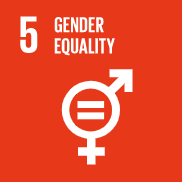


Our human capital is most powerful and vital asset and the source of all value creation at MC.
In order to continue to be a "company that connects versatile and diverse human resources who take on the challenge of addressing societal and industrial issues with satisfaction and pride”, in a rapidly changing business environment, we established our “DEAR” people strategy (Diversify, Energize, Accelerate, Reward), looking ahead to the next 10 years.
Based on the concepts of “DEAR” , we are developing and implementing various people-related strategies as mentioned in our Midterm Corporate Strategy: 1. Strategic experience based HR Development model for sustainable “value creation leaders” provision,, 2. Organization culture cultivation and work environmental evolvements for MCSV creation.
Please refer to our Integrated Report and each page of our Sustainability Website for MC’s 10-year HR Vision: “DEAR”, as well as our action plans for our ”HR Strategy” and ”Strengthening Engagement”.
<Strategic experience based HR Development model for sustainable “value creation leaders” provision>
<Organization culture cultivation and work environmental evolvements for MCSV creation>
In addition, in order to further strengthen employee engagement, we conduct "Employee Awareness Survey“ annually with the aim of observing employee motivation and organizational vitality at a fixed point and linking it to operational improvements, and we measure "Employee engagement rate" and "Employee enablement rate" in the survey as quantitative KPIs.
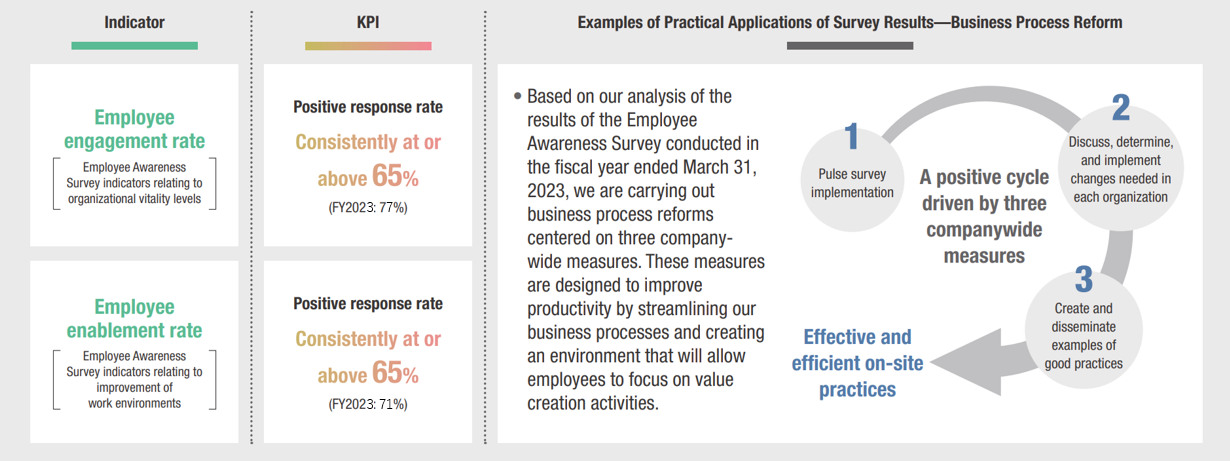



While swiftly responding to changes in the business environment, strive to realize effective governance on a global, consolidated basis and maintain/strengthen a sound organization that is transparent and flexible.


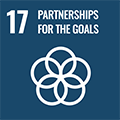
In this era of rapid transformation, it is essential to have the mobility to promptly adapt to the changes in the world while having a broad perspective in order to realize sustainable growth. In addition, we recognize strengthening corporate governance on an ongoing basis as a fundamental management policy since it is the foundation for ensuring sound, transparent and efficient management, all of which are integral for sustainable growth. From this perspective, our chief initiatives are as follows.
As MC engages in a global network of business operations across all regions and industries, MC has accumulated intangible assets in the form of intelligence and industry expertise. Through the efficient and effective division of functions among our Head Office, global offices and subsidiaries, as well as group companies, we are constantly collaborating to enhance our ability to respond to change and generate the next source of significant growth.
Through our global network developed over many years, MC possesses multifaceted intelligence and know-how in macroeconomics, industry and geopolitics. In order to connect this diverse intelligence and further strengthen our ability to respond to changes in the external environment, MC has newly established the Global Intelligence (GI) Committee in 2022. By incorporating the analysis of the GI Committee into companywide strategies, we will strengthen the driving force of our Business Groups and collaboration across all industries.

MC has always been flexible in adapting its businesses and systems to match the changing times. The need for such flexibility is greater than ever in these turbulent times, requiring companies to be even more agile. We will continue to flexibly reshape our organizational structure and human resources in order to respond rapidly to changes in the business environment and management strategies, and to create shared value.
MC has announced “Midterm Corporate Strategy” in May 2022. Under Midterm Corporate Strategy 2024, MC has set the goal of creating MC Shared Value (MCSV). More specifically, this refers to the continuous creation of significant shared value by elevating the MC Group’s collective capabilities in order to address societal challenges. To this end, we are promoting a number of growth strategies, namely our Energy Transformation (EX) Strategy, Digital Transformation (DX) Strategy and Creating a New Future (Fostering New Industries/Regional Revitalization). In this way, we are strengthening the capabilities of each Business Group and working to develop cross-industry businesses that transcend the boundaries of business domains.
As a result of these efforts, MC has come to the following conclusions.
Considering the circumstances, MC has announced to modify organizational framework in December 2023 to enable the creation of MCSV on a larger scale by restructuring our organizations to support optimal progress in line with these business strategies and themes.
Reorganizations will also be implemented to bolster the functions of the Corporate Staff Section and MC’s regional offices around the world.
Please see “Mitsubishi Corporation Announces Reorganizations for FY2024” for more details.
MC will continue to modify its organizational structure in order to adapt appropriately to the ever-changing external environment.
Based on its fiduciary responsibility and accountability to shareholders, the Board of Directors shall fulfill the roles and responsibilities listed below to promote Mitsubishi Corporation (MC)’s sound and sustainable growth and continuous increase of corporate value, and to help enrich society, both materially and spiritually while also realizing transparent, fair, timely and decisive decision-making and highly effective oversight of the management.
With the Three Corporate Principles for a corporate philosophy, MC strives to continuously increase corporate value through corporate activities rooted in the principles of fairness and integrity. MC believes that by helping to enrich society, both materially and spiritually, it will also meet the expectations of all its stakeholders. In order to achieve these goals, MC recognizes strengthening corporate governance on an ongoing basis as a fundamental management policy since it is the foundation for ensuring sound, transparent, and efficient management.
In June 2024, We have transitioned to a Company with an Audit & Supervisory Committee in order to further enhance our ability to respond to accelerating changes in the current external environment surrounding MC’s businesses. In addition to expediting decision-making through the delegation of authority, this transition has also enhanced and improved the monitoring function of the Board of Directors by enhancing deliberations centered on management policies and strategies at the Board of Directors meetings, thereby increasing corporate value.
To ensure that Directors (excluding Directors who are Audit & Supervisory Committee Members) and Directors who are Audit & Supervisory Committee Members are able to perform their monitoring function and audit functions adequately after the transition, the Board of Directors’ Office and the Audit & Supervisory Committee’s Office (herein referred to collectively as the “Support Offices”) have been established, and have been providing necessary information and support appropriately and in a timely manner for Directors (excluding Directors who are Audit & Supervisory Committee Members) and Directors who are Audit & Supervisory Committee Members to perform their own duties.
Prior to each meeting of the Board of Directors, opportunities are created for the management executives of the Corporate Staff Section and Business Groups to provide explanatory summaries of the agenda items for which they are responsible to Independent Directors and Independent Audit & Supervisory Board Members in order to facilitate substantive deliberations at the meetings. The sessions are also utilized to appropriately share timely information that helps enhance deliberations. The Support Offices also provide an orientation to newly appointed Independent Directors, as well as ongoing opportunities to increase their understanding of the businesses and strategies of MC, including annual site visits to business subsidiaries and affiliates and opportunities for dialogue with the management, the General Managers of Corporate Staff Section, Business Group CEOs and Business Division COOs, and small group discussions with Executive Vice Presidents and dialogues with mid-level and young employees.
For the purpose of enhancing the monitoring function of the Board of Directors, MC has established the following three committees, Corporate Governance and Nomination Committee, Compensation Committee, and International Advisory Committee, consisting mainly of members who are independent and outside members, as advisory bodies to the Board of Directors. Each committee shall deliberate based on the opinions and advice of outside members.